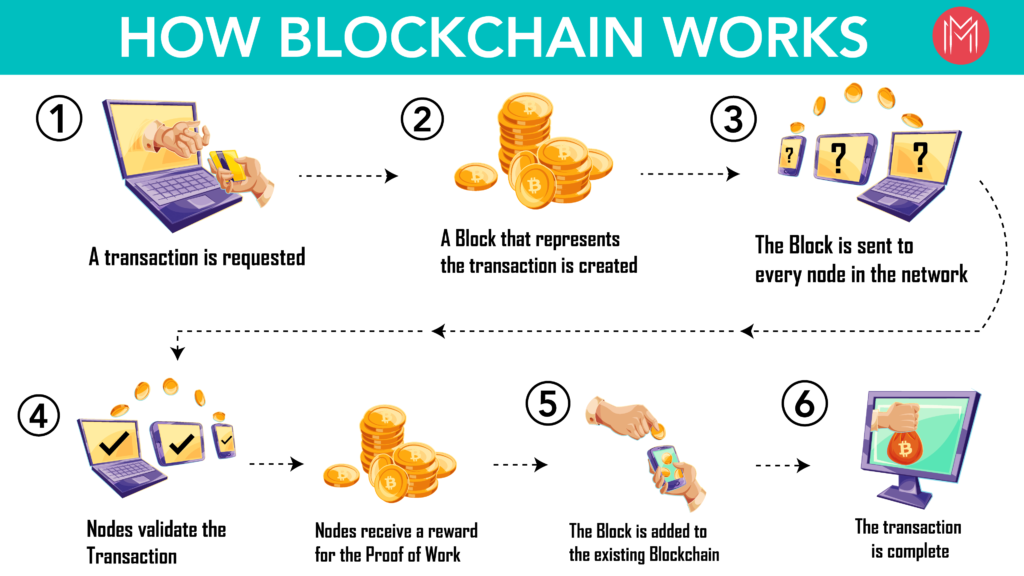How to make money on Blockchain
How to make money on Blockchain. The global blockchain technology market is projected to surpass $163 billion by 2029. As this technology continues to grow, it is transforming various aspects of daily life. Blockchain, in simple terms, is a way to store data securely across a network, allowing for transparency and decentralized control. This article explores five practical uses of blockchain that showcase its potential to reshape our everyday experiences.
Secure Digital Identity Management
Limitations of Current Digital Identity Systems.
How to make money on Blockchain
Today’s digital identity systems face significant challenges. Data breaches are alarmingly common, affecting millions each year. According to a report, in 2021 alone, there were over 1,800 data breaches, exposing over 281 million personal records. With identity theft on the rise, people are increasingly at risk of losing sensitive information.
Enhancing Security with Blockchain. How to make money on Blockchain
Blockchain can address these issues by providing a decentralized identity management system. This method allows individuals to control their own digital identities securely. An example of this in action is the company Evernym, which uses blockchain to create self-sovereign digital identities. Users can share only the necessary information, significantly reducing the risk of identity theft.
Benefits of Blockchain-Based Digital Identities
- Increased Security: Blockchain’s encryption makes data nearly impossible to alter.
- User Control: Individuals have more power over what information they share.
- Interoperability: Different systems can work together seamlessly, making transactions easier.
Supply Chain Transparency and Traceability
Challenges in Traditional Supply Chains
Traditional supply chains often struggle with transparency and traceability. A startling 83% of supply chain leaders have indicated they face issues with inaccuracies in their supplier data, leading to fraud and inefficiencies. This lack of clarity results in financial losses and diminished consumer trust.
Blockchain’s Impact on Supply Chain Management
Blockchain technology enables real-time tracking of goods throughout the supply chain. Retail giant Walmart has implemented blockchain solutions that allow them to trace food products back to their origin in seconds. This not only enhances safety but also improves the overall efficiency of operations.
Benefits of Blockchain in Supply Chains
- Improved Efficiency: Real-time data access speeds up processes.
- Reduced Fraud: Transparent systems reduce chances of dishonest practices.
- Enhanced Consumer Trust: Knowing the product’s journey builds customer confidence.
Secure Voting Systems
Vulnerabilities in Traditional Voting Systems
Many voting systems have vulnerabilities that can lead to manipulation or fraud. Studies indicate that approximately 87% of voters have concerns about the security of the voting process. Issues such as outdated technology and lack of transparency contribute to these fears.
Blockchain for Election Security
Blockchain offers a solution by creating secure and verifiable voting systems. In 2020, Utah County, Utah, conducted a pilot program using blockchain to secure absentee ballots. This technology allows for real-time verification and auditing, enhancing the credibility of elections.
Benefits and Challenges of Blockchain Voting
- Benefits: Increased transparency, enhanced security, and the ability to audit votes easily.
- Challenges: Technological barriers for some voters and the need for regulatory acceptance.
Decentralized Finance (DeFi) and Everyday Banking
Limitations of Traditional Banking
Traditional banking systems often have high fees, lengthy processing times, and limited accessibility for many. Reports show that nearly 1.7 billion adults worldwide remain unbanked, unable to access basic financial services.
DeFi Solutions for Everyday Banking
Decentralized Finance (DeFi) platforms utilize blockchain technology to provide faster, affordable, and accessible financial services. Examples include platforms like Aave and Uniswap, which allow users to lend, borrow, and trade without intermediaries.
Benefits and Risks of DeFi
- Benefits: Lower fees, quicker transactions, and increased access to financial services.
- Risks: Volatility, potential for market manipulation, and the need for users to understand the technology.
Secure Data Storage and Sharing
Challenges of Securing Sensitive Data
Storing and managing sensitive data in cloud services presents many challenges. A 2022 report found that 41% of organizations experienced a data breach, leading to substantial financial losses and reputational damage.
Blockchain for Secure Data Management
Blockchain enhances data security and privacy through decentralization. For instance, the data storage platform Filecoin allows users to securely store and share data without relying on a single entity. This architecture significantly reduces the chances of data breaches.
Advantages of Blockchain Data Management
- Enhanced Security: Data is encrypted and distributed, making it less vulnerable to attacks.
- Improved Data Integrity: Changes to data are easily verifiable.
- Increased User Control: Users can determine how and when their data is shared.

Conclusion
Blockchain technology is reshaping our everyday lives through various practical applications. From securing digital identities to enhancing supply chain transparency, blockchain holds transformative potential. Exploring these use cases can provide valuable insights into the future of technology.
Consider investigating how you can engage with blockchain further. Whether it’s learning about DeFi or understanding decentralized identity, there’s much to discover. Dive into the world of blockchain and become a part of this exciting evolution.




